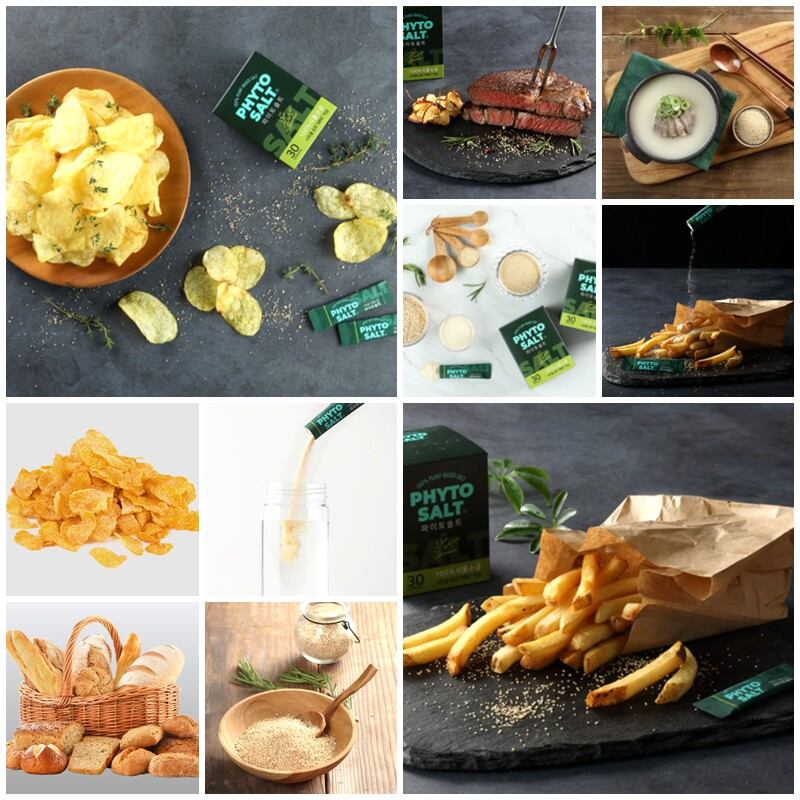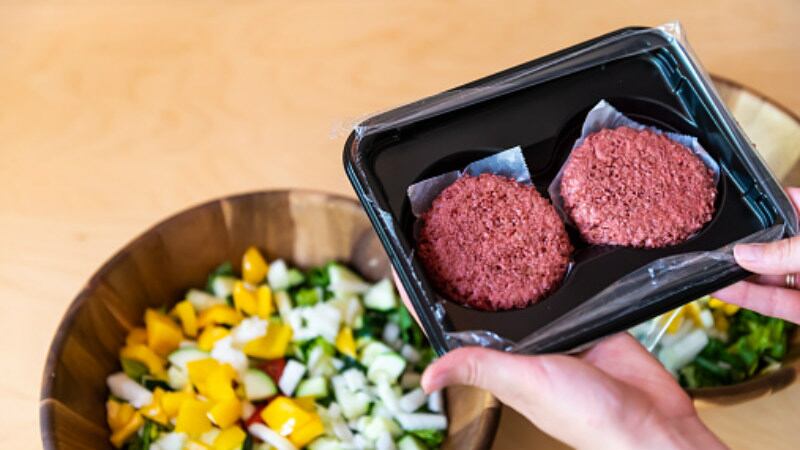PhytoCo has built a name for itself by developing a range of products from the salt-accumulating plant Salicornia (also known as sea bean or sea asparagus).
When we last spoke to them, the firm had won the StartupSG Award from the Singapore government at Future Food Asia 2019 for PhytoSalt, even prior to its official launch.
“PhytoSalt is a salt product for health-conscious consumers – it is naturally low-sodium enabling it to reduce the sodium content of food products by 20%, it has been scientifically proven to be effective on blood pressure, and it is 100% microplastics-free as the Salicornia plant cell membrane can filter out microplastics in seawater,” PhytoCo CEO and President Duke Kim told FoodNavigator-Asia.
“Best of all, it does all this while giving the same salty taste as regular salt, so consumers do not need to compromise on taste or flavour.”
PhytoSalt is able to do this due to its natural chemical composition: In addition to NaCl (sodium chloride, normal table salt), it also contains an abundance of other mineral salts such as KCl (potassium chloride), MgCl2 (magnesium chloride), and CaCl2 (calcium chloride) which contribute to the salty taste; as well as glutamic acid, which acts as a natural enhancer for this.
“In this way, PhytoSalt can be used in all the foods that normally need to have salt added - such as bread, cake, snack, pasta, soups - in the same way as regular salt,” said Kim.
“It is especially good for use with salty snacks such as chips, crackers, pretzels, and french fries, and we also recommend it for use as a sports drink – it is rich in essential minerals such as potassium, calcium, magnesium, and iron, so if you drunk with water after sweating, it can replenish the electrolytes that have escaped with sweat.”
The firm has opted to launch PhytoSalt in Korea first due to the health-conscious crowd, as well as it being home base.
“We recently launched in Korea first, due to the large consumer base. In the future, we also plan to launch to Japan, China, Europe and the United States, all of have large consumer bases that pursue health,” Kim said.
“We are also planning to add a B2B element and deliver PhytoSalt to global food companies in the form of bulk packages in the future as many of these have expressed interest in using this as a seasoning ingredient for their food products.”
PhytoSalt is currently retailing US$ 7 for a box of 30 sticks on Korean site Wadiz, after which it will move to more online and offline markets locally and globally.
More control
In addition to being healthier, PhytoSalt also carries the benefit of being more controllable in terms of salt content and intensity due to its processing.
“PhytoSalt is extracted from Salicornia using the technology principle of what we call the ‘Effect of Temperature on Solubility’ – how we do it enables the salt content and taste of PhytoSalt to be controlled as preferred,” said Kim.
Other salts do not have this benefit and carry additional issues as well – sea salt commonly sees levels of microplastics and hormones embedded, whereas table salt contains over 99% of sodium chloride, a major issue in high blood pressure.
Upcoming NPD
PhytoCo has also developed PhytoMeal, what it calls a new ‘superfood ingredient’ – also from Salicornia.
“PhytoMeal is effective in reducing body fat, and we plan to supply this as a diet food ingredient to global food and pet food companies for use,” said Kim.
As a whole, the firm will also continue to hedge its bets on Salicornia, which is believed to be not only a healthy but also sustainable source of food.
“The global COVID-19 outbreak is giving humanity a deep awareness of health, safety and the global environment, so especially when it comes to food consumption, consumers will pursue healthier and safer foods, especially in the APAC market where there is a high demand for healthy foods” he added.
“Also, in terms of the global environment, the world is now facing a serious shortage of crop production due to water shortages caused by climate change, but Salicornia is mass-cultivated by seawater agriculture and could potentially solve these food shortages.”





